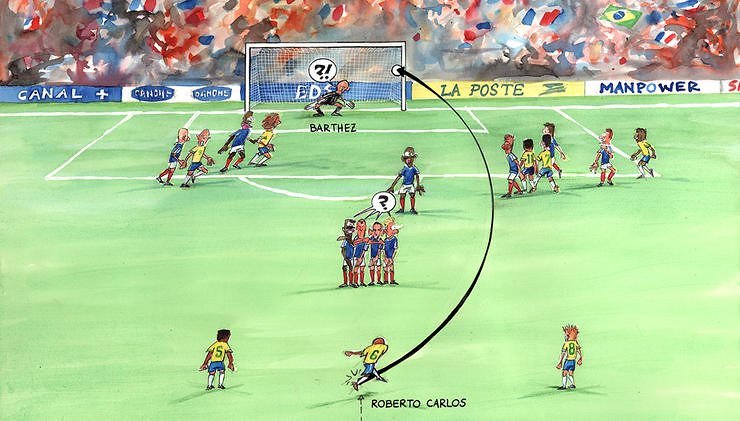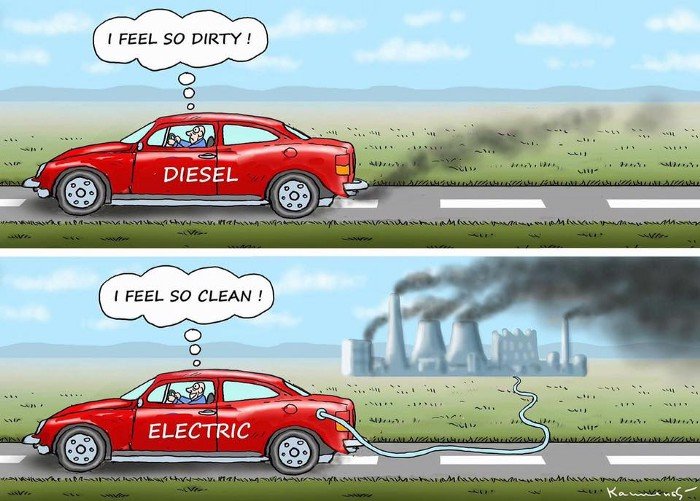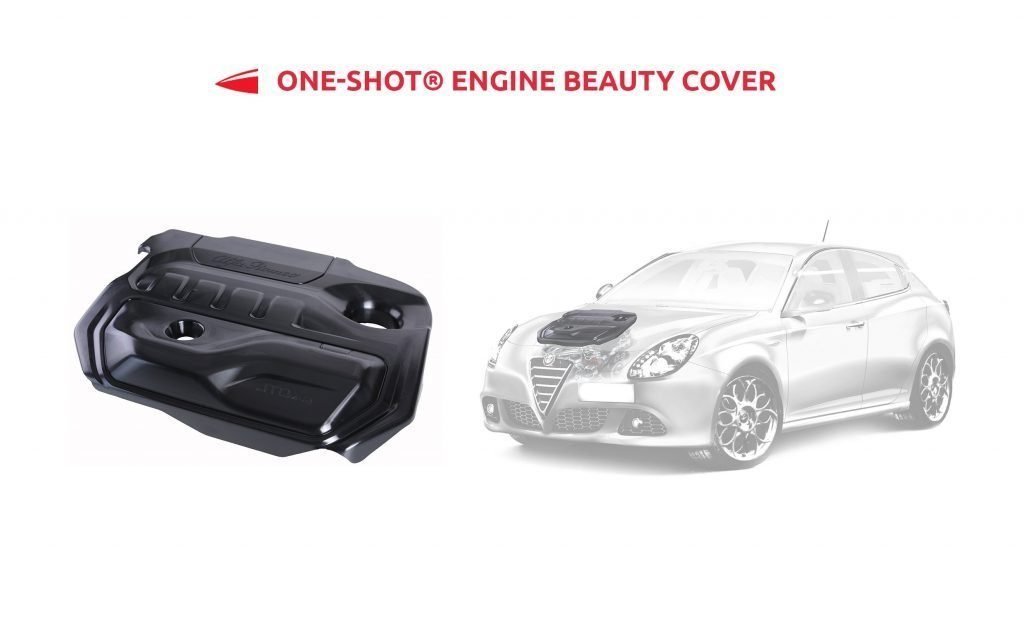Do you work for a car maker? Then you are also called upon a reflection on the results of a new study that confirms that electric cars can be much worse for the environment than diesel cars.
“The eu objective of 59 grams of co2 per kilometre by 2030 is technically not realistic.” We need a new and different vision of the future of the automotive sector.
Do you ever wonder whether you are going in the right direction?
Do you ever fear that the efforts you make every day are pointless and are not taking you where you want to go?
“Life is the sum of your choices” – if a Literature Nobel Prize like Albert Camus says so, we may well believe him.
Asking ourselves whether we are really doing what is necessary to reach our objectives is very helpful. It prevents us from making superficial decisions and, more importantly, it reduces the risk of error.
Well, asking myself whether I was going down the right path sometimes faced me with ugly truths, and it prompted me (it forced me!) to correct my direction. It was a lesson I learned very soon and at my own expense.
You see, my great passion in sports has always been for basketball… But who in Italy has not dreamt as a child of becoming a football player?
When I was a child, many young people of my age and I were in awe of Roberto Carlos, a Brazilian, very fast and technical full-back, who also possessed the most powerful kick ever seen. His goals became famous worldwide, if you follow football a little you know what I’m talking about.

“Ok but… Will you also tell me why electric cars pollute more than diesel cars?!”
I’m getting there, no worries. Please follow me, you’ll soon understand why.
“I must kick as hard as he does!”, I used to think. And off I went trying and trying. Week after week, month after month, at the football ground, in the garden, in the house (my mum remembers very well…!) I was kicking my ball with all the strength I had. I kicked and kicked, and I tried to understand how I could kick harder.
Then it got to the match.
Was I kicking harder? Sure. Was I scoring more? Not a chance!
Results: I was kicking too high. Too wide. Over the crossbar. Against the crossbar.
“PAAAASSSSSS IT”. Thinking back of this scream by Paolo, a dear childhood friend, who was frustrated by my mistakes makes me smile – now, back then on the contrary, it depressed me.
What I am doing wrong? Asking myself questions helped me understand the simplest thing: in football, there is no prize for the one that kicks the hardest.

In the same way, the goal that the automotive industry must score is to become more sustainable for the environment.
Are we sure that investing in electric cars will take us in this direction?
In order to score a goal, you need precision besides power (in fact, even more than power). I was simply aiming for the wrong objective. The efforts I was making were certainly helping me progress in the aspect I was training, but what was the point of that?
“PAAASSSS IT!”, was an abrupt, traumatic wake-up call. But it had me think of what I was doing (thank you, Paolo) and improve, and pay attention to where I was aiming rather than to the speed at which I was going to make the ball fly.
OK, then I did not end up playing in the Serie A and I was still much keener on basketball rather than football, but it was a very useful lesson. Also to help me score some extra 3-pointers…
• WHAT IF THE COMPANIES THAT ARE INVESTING IN ELECTRIC CARS WERE ACTUALLY COMMITTING SUICIDE?
Let’s get back to our main point. A couple of days ago I was at home. After dinner I usually relax and go through the news in the automotive sector. Now you’re ready to find out why I told you about my past as a young football player.
I laid my eyes on the results of the study carried out by prof. Christoph Buchal of the University of Cologne in collaboration with Hans-Dieter Karl and Hans-Werner Sinn of the IFO, the Research Institute in Munich, on the environmental impact of electric cars.
So?
While I was reading it, I thought that the car makers that are massively investing in electric cars might have experienced something very, very similar to what the young Giovanni experienced when he was trying kick harder to imitate Roberto Carlos.
The conclusions that the German researchers got to will surprise you.
“Electric vehicles have significantly higher emissions than diesel cars”.

It is hard to believe, isn’t it? And yet…
And yet there is more. According EU plans, the emissions limit of 59 grams of CO2 per kilometre is to be reached by 2030, this corresponds to a consumption of 2.2 litres of diesel or 2.6 litres of gasoline per 100 kilometres.
“This objective – say the German researchers – is technically unrealistic”. Car makers are already aware of this and for this reason they are gradually focussing their attention and research on bringing electric vehicles to the market.
• THE BEST INVESTMENT YOU CAN MAKE TO PRODUCE GREENER CARS, STARTING NOW
We’ll analyse the data released by the German researchers that underpin such dramatic conclusions, but one thing at a time.
That future cars need to be more lightweight and less polluting is demonstrated by the resources available and by the increasingly urgent need of sustainability that the planet we inhabit expresses. The ongoing climate change forces us to act. To change. And to do so in a concrete, decisive and, especially, quick way.
Is the full-electric option viable? Of course, it is!
As you know, however, it has a series of issues, too:
• Consumers’ habit to use diesel cars (with a relative sales boom of Volkswagen cars in 2018) is to be taken into account.
• High costs, low autonomy, issues in battery disposal, need of recharging facilities, etc. These issues are known to you and there’s no need to go into further details here.
• The results of the German study relative to the actual environmental impact raise new, enormous doubts as to the sustainability of this production model.
“CO2 emissions from electric cars weigh on the environment between 11% and 28% more than diesel cars” according to prof. Buchal and his team.
How is this possible?
The problem is linked to the high level of energy required to extract and process lithium, cobalt and manganese, which as you know, are the fundamental raw materials to produce batteries for electric cars.

Let’s have a look at two concrete examples, please follow me:
1) One battery for a Tesla Model 3 has an environmental impact worth between 11 and 15 tonnes of CO2;
2) Every battery has a life span of around 10 years and of 94,000 kilometres in total, and this means that CO2 emissions would increase from 73 to 98 grams for kilometre.
3) If we also factored in the emissions resulting from the electricity production to recharge the batteries, Tesla would actually produce between 156 and 181 grams of CO2 per kilometre. This is significantly higher than, for example, a diesel Mercedes of the same class.
• ELECTRIC CARS HAVE ZERO EMISSIONS, RIGHT? FALSE!
The authors of the study got to this outcome, and they defined this EU classification as “misleading”.
So, we come back to the initial question: are the automotive industries that consider electric cars as the cure-all solution really going in the right direction?
A foreword is necessary. The greatest advantage of the large-scale use of electric cars would be the absence of local emissions in densely populated areas.
Honestly? I think that electric cars can be the future.
In the meantime, though, the planet lives in the present.
If we don’t find a solution for the significant pollution created by the mining needed to produce the batteries and if we don’t find ways to coherently recycle, then, even if the issues related to charging the batteries and their autonomy were not there, the promise for a greener mobility made by electric cars proves to be rather shaky.
The objective, “the goal”, is to be less polluting and to do so as of now. Let’s not forget this.
• HOW YOU CAN BE SURE THAT YOUR EFFORTS TO REDUCE EMISSIONS ARE NOT ACTUALLY POISONING THE ENVIRONMENT
Nowadays, we have evidence that the automotive industry is not ready to embrace the electric revolution; therefore, it must look for sustainable and effective alternatives immediately.
This is why this line of thought makes me think that SAPA is moving in the right direction.

We have been participating in a research program called LIFE BIOBCOMPO for several months, together with CRF, FCA and SOPHIA and with the support of the European Union, whose objective is to reduce CO2 emissions by 8% by June 2021.
How?
By lightweighting the parts and using composites, and by substituting conventional mineral fibres with bio-based ones, which promotes the use of more sustainable resources. This philosophy is also the basis of the One-Shot® Method, which was patented by SAPA and is already in use.
It is the world’s fastest production process to create car parts with:
• LESS WEIGHT
• LESS WASTE
• LESS TIME
• HIGH QUALITY PERFORMANCES
The patented One-Shot Method is an alternative to the traditional method and offers the possibility to reach the same objectives in terms of scraps reduction, lightweighting of the parts, reduction of lead times as the electric technology. But without the issues that electric technology comes with at the moment, as we’ve seen before.
The truth is that when we hear about waste and pollution, we immediately think of fuel, but production-related pollution also exists and stems from long processes and non-optimised systems. The parts created with the One-Shot® Method are produced with one single mould and in just one production island.
You’ve already understood where I’m headed, right?
• Energy savings in production, less waste and emissions thanks to our lean production: just one production island, just one mould.
• Greener and less costly cars: less consumption and less CO2 emissions thanks to our lighter parts.
• Planet Earth thanks you: most of our parts are 100% recyclable.
• Getting closer to the Horizon 2020 objectives: The One-Shot® Method is the currently the best solution presented by the automotive industry.

We cannot tell whether the future of the automotive sector will be electric. What we know is that the sustainability requirements and the need to find solutions that transform cars are very real and require immediate solutions.
Whatever the type of car that you want to produce, if your objective is to reduce emissions, the state-of-the-art findings in the automotive sector show that there is no other solution that is as effective and as concrete as the One-Shot® Method.



